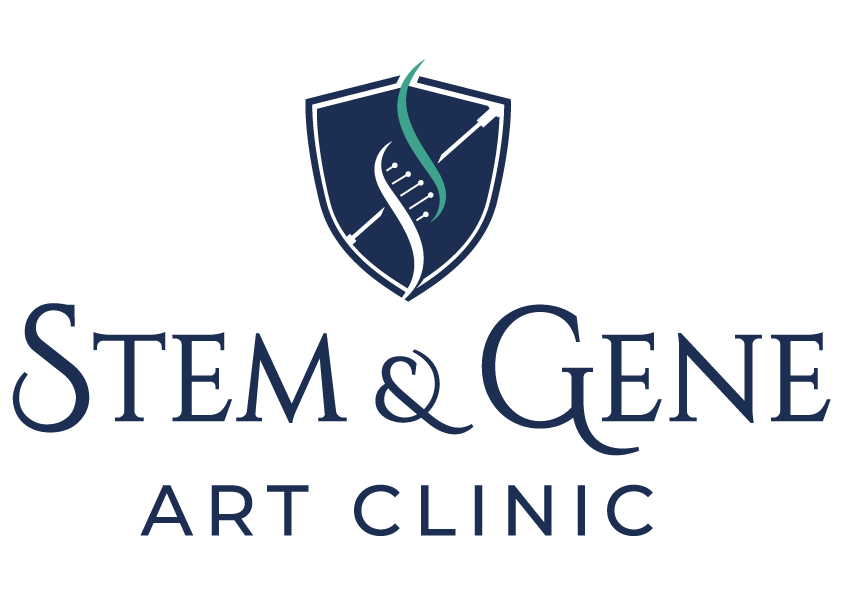Natural cycle microinjection (ICSI) is an innovative approach to fertility treatment that offers a natural process with minimal intervention. Using the woman’s body’s own natural ovulation cycle without the need for hormone therapy, this method is a great source of hope, especially for women with low egg reserves or those who do not respond to hormone therapy. Offering the opportunity to obtain healthy embryos without straining the body, natural cycle ICSI can bring you one step closer to success. Take action now to increase your chances of having a baby the natural way!
What is the Natural Cycle and its Role in Infertility Treatment?
The natural cycle refers to the regular, unstimulated menstrual cycle where a woman’s body produces one mature egg each month without the assistance of fertility medications. In the context of infertility treatment, the natural cycle offers a gentler approach by utilizing this naturally occurring egg for fertilization. Unlike conventional IVF treatments, where ovarian stimulation is used to produce multiple eggs, the natural cycle focuses on the single egg that the body releases, maintaining a more natural balance.
This approach is especially beneficial for women who have a low ovarian reserve or those who are sensitive to hormonal treatments. It reduces the risks of complications, such as ovarian hyperstimulation syndrome (OHSS), a potential side effect of hormone injections used in traditional IVF. Additionally, for couples who want to avoid multiple embryo creation or are concerned about the ethical implications of unused embryos, the natural cycle provides a more selective and focused option. By allowing the body to work in its natural state, this method can help reduce the stress and emotional burden often associated with more invasive fertility treatments.
Natural cycle fertility treatments are increasingly being recognized for their ability to align with a woman’s natural reproductive process, offering a promising solution for those who prefer a minimally invasive approach. For couples experiencing infertility, this method presents a less disruptive way to pursue pregnancy while still utilizing advanced reproductive technologies like ICSI.
ICSI Method: Microinjection Process and Success Rate
Intracytoplasmic sperm injection (ICSI) is an advanced form of assisted reproductive technology where a single sperm is injected directly into the cytoplasm of an egg to facilitate fertilization. This method is particularly useful in cases of male infertility, such as low sperm count, poor sperm motility, or abnormalities in sperm morphology. ICSI can also be employed when previous fertilization attempts through traditional IVF have been unsuccessful. When combined with the natural cycle, ICSI targets the single egg produced during a woman’s unstimulated cycle, maximizing the chances of fertilization.
The ICSI process in a natural cycle begins with close monitoring of the woman’s ovulation. Once the body has naturally produced and released a mature egg, the egg is carefully retrieved through a minimally invasive procedure. Using high-magnification microscopes, the embryologist selects a healthy sperm and injects it directly into the egg, bypassing the need for the sperm to penetrate the egg on its own.
Success rates for ICSI in a natural cycle depend on several factors, including the woman’s age, egg quality, and the underlying cause of infertility. While conventional IVF aims to retrieve multiple eggs to increase the chances of fertilization, the natural cycle ICSI focuses on quality rather than quantity. The absence of hormonal stimulation may result in fewer eggs, but those produced tend to be of better quality. This approach is especially beneficial for women with a history of poor response to ovarian stimulation or who prefer to avoid the risks and side effects associated with fertility drugs.
In terms of success rates, while fewer eggs may be available, the precision of the ICSI technique increases the likelihood of successful fertilization, particularly in cases where sperm issues are present. For couples seeking a natural yet technologically advanced infertility solution, ICSI combined with the natural cycle offers a balanced and effective option.
Advantages and Disadvantages of ICSI in Natural Cycle
Like any fertility treatment, ICSI in the natural cycle comes with its own set of advantages and disadvantages that should be carefully considered before proceeding.
Advantages:
• Minimal Medication Use: One of the most significant advantages of natural cycle ICSI is the reduced reliance on medications. Since the treatment utilizes the egg produced naturally during the woman’s menstrual cycle, there is no need for ovarian stimulation drugs. This reduces the risk of side effects such as ovarian hyperstimulation syndrome (OHSS), which can be a concern in traditional IVF.
• Lower Costs: With fewer medications and a simpler monitoring process, the natural cycle ICSI can be more cost-effective compared to traditional IVF. This makes it a more accessible option for couples who may have limited financial resources but still want to pursue fertility treatments.
• Higher Quality Embryos: Even though fewer eggs are retrieved, the egg produced in a natural cycle is often of higher quality. Since it is developed without external hormonal interference, it can have a better chance of leading to successful fertilization and implantation.
• Holistic Approach: The natural cycle aligns more closely with the body’s natural rhythms, offering a less invasive and emotionally taxing option for couples who prefer a more organic approach to fertility treatment.
Disadvantages:
• Limited Number of Eggs: One of the primary disadvantages of natural cycle ICSI is that only one egg is produced each cycle. This can be a limitation for women with lower egg quality, as fewer eggs mean fewer opportunities for fertilization and embryo development.
• Risk of Cycle Cancellation: Since the process depends on the single egg produced during the natural cycle, there is a chance that the egg may not develop as expected, or ovulation may not occur, leading to cycle cancellation. This unpredictability can be frustrating for couples hoping for faster results.
• Lower Success Rates per Cycle: Because only one egg is retrieved, the success rate per cycle may be lower than in traditional IVF, where multiple eggs increase the likelihood of achieving a viable embryo. This may require more treatment cycles to achieve pregnancy.
Understanding these advantages and disadvantages can help couples make informed decisions about whether natural cycle ICSI is the right fertility treatment for their needs.
Tips and Precautions to Increase Chances of Success
For couples undergoing natural cycle ICSI, there are several tips and precautions that can help improve the chances of success. Since the process relies heavily on the body’s natural rhythms, maintaining overall health and well-being is essential. Here are some key tips to consider:
1. Optimize Nutrition: A balanced diet rich in vitamins, minerals, and antioxidants can support egg and sperm quality. Women should focus on foods high in folic acid, iron, and omega-3 fatty acids, while men should consume foods that boost sperm health, such as zinc-rich foods and antioxidants.
2. Maintain a Healthy Lifestyle: Regular exercise, managing stress, and getting enough sleep all contribute to overall reproductive health. Stress reduction techniques such as yoga, meditation, or acupuncture can also play a role in improving fertility outcomes.
3. Avoid Harmful Substances: Both partners should avoid smoking, excessive alcohol consumption, and exposure to environmental toxins, as these can negatively impact both egg and sperm quality.
4. Monitor Ovulation Closely: Since natural cycle ICSI depends on the woman’s natural ovulation, it is crucial to have accurate monitoring of the menstrual cycle. This ensures that the egg retrieval is timed perfectly with the body’s natural cycle, increasing the chances of a successful outcome.
5. Stay Positive and Informed: The natural cycle approach may require multiple attempts to achieve success. It’s important to stay informed, maintain realistic expectations, and work closely with a fertility specialist to optimize treatment outcomes.
By following these tips and precautions, couples can maximize their chances of success and make the most of their natural cycle ICSI journey.
For some couples, however, other fertility options like IVF with donor eggs may offer a better chance of achieving pregnancy, especially if there are issues with egg quality or ovarian reserve. This advanced option allows women to carry a pregnancy using a donor’s egg, providing hope in even the most challenging infertility cases.


